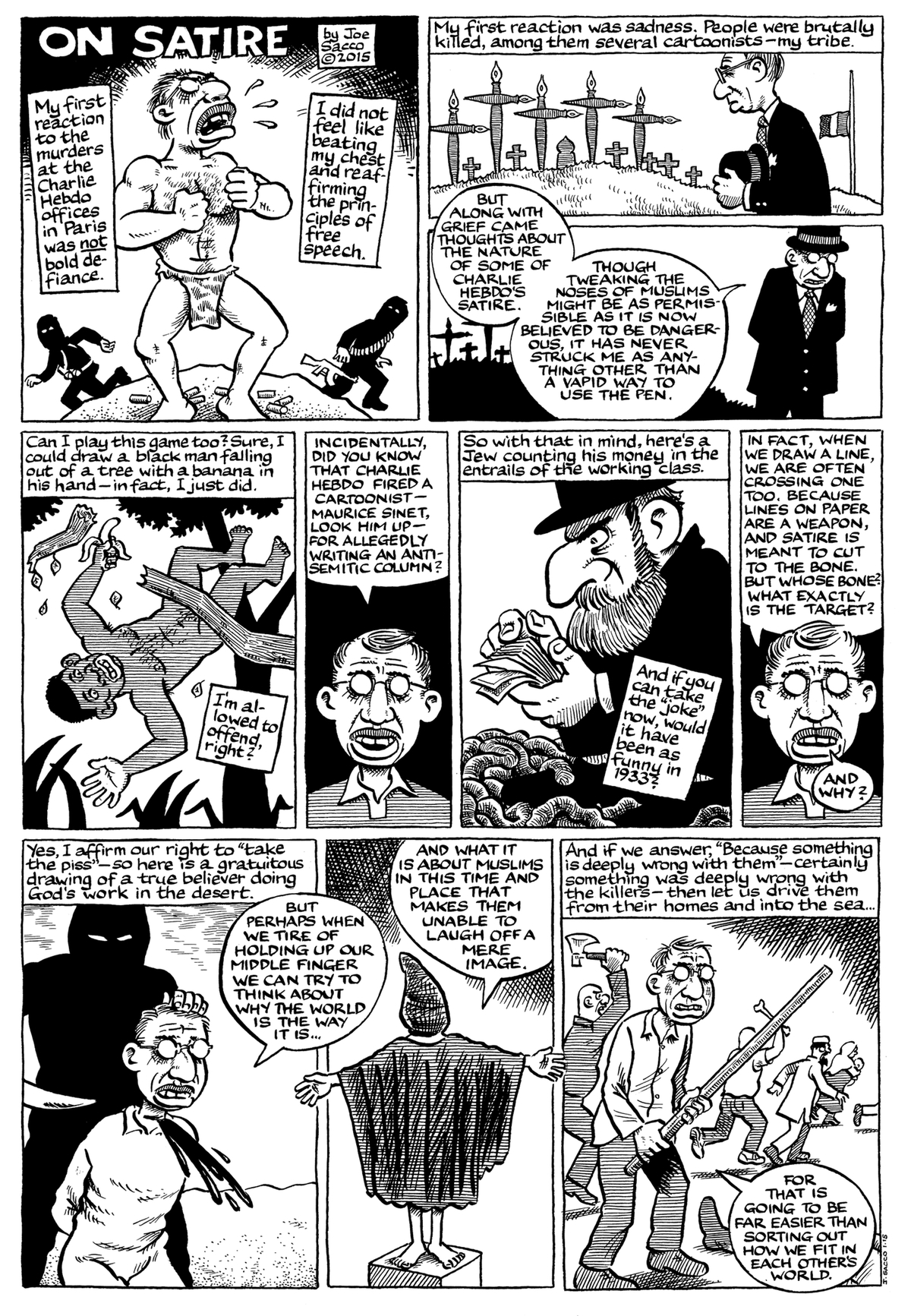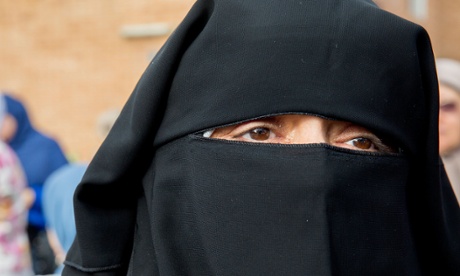It goes without saying, but should be said anyway.
The various violent events that have dominated our media over the last few days, weeks and months have been heart wrenching atrocities. Lives have senselessly been lost, bringing the precarious nature of our comfortable lives into sharp relief. It is almost exhausting in its relentlessness, and bizarre to step back and realise that we live in a world where violence has taken on a gross normalcy; terrible, yet no longer completely out of the ordinary.
After the Sydney Siege, there was little I felt I could add to the public lament.
Yet after Sydney, 2014 didn't let up. It was followed by the slaughter of innocent children in Peshawar, the grinding, endless deaths in Congo, the murders in Paris and an unimaginable massacre in Nigeria, only a few days ago.
The easy option in dealing with this barrage, this constant reminder of the cruelty of humans, is to switch off.
Stop reading the commentary.
Stop engaging in the debate.
Stop critically analysing and regress to black and white, to binary thinking, to 'us' and 'them', 'them' being whoever you deem as broadly evil or uncivilised, depending on your colour and place of birth.
That cannot be our response.
Yes, in the midst of the mourning, there has been a troublesome vein of hatred that has bubbled beneath the surface. Glints of these perspectives and attitudes are epitomised in the language and expectations surrounding the media and commentary around the violence.
Listening to my favourite news podcasts for example, or even to our own Tony Abbott, there was a constant reminded that 'they hated 'our' freedoms', our 'civilisation', our 'liberty'.
Who are 'they'?
'We' have to stand against the extremists, people say. We can't let 'them' win...
The problem being that entire groups are demonised, dangerously so. The framing makes someone like me - thoroughly, visibly Muslim and fervently Aussie because well, this is home - almost ask myself the question: am I us, or them?
Of course I know...right? Yet, there is a constant implied expectation for justification. The is a whisper of accusation in all the tones, forming seeds of doubt fertilised by ignorance and lack of exposure to anything but the dominant discourse...
The nuances are oh-so-subtle.
The language polarises, forces us to choose sides without realising what we are doing. It frames our conversations in ways that moulds our thinking: classical grade 10 critical literacy stuff. Obvious to those paying attention, but how many of us truly are?

It has been explained very well by writers more impressive than I, and there are links below to some very interesting and thought provoking reading around how the media reporting is clearly biased, how blaming all Muslims isn't going to help as expecting constant apologies is damaging in itself and how providing context is not the same as justifying an action. In ruminating on our collective (i.e. humanity's) current situation, the following became clear:
ONE.
The language we use to refer to those who commit violent acts must change. 'Islamists', 'radicals', 'fundamentalists', 'extremists' and the like simply suggest that well, these actions are at the fundamental core of what it is to be Muslim. It legitimises their actions as Islamic, when scholars worldwide have time and time again, said that they are not.
Rather, they should be referred to as what they are: Violent criminals.
We don't often refer to criminals by their perceived or claimed motivation: A bank robber is a bank robber, not a greedy-capitalist. A murder is a murder, not a politically-motivated-youth-claiming-Islam-backs-him.
TWO.
If we turn on each other, we are playing into the hands of these violent criminals.
Juan Cole puts it brilliantly:
"Al-Qaeda wants to mentally colonize French Muslims [and this can apply to all nationalities], but faces a wall of disinterest. But if it can get non-Muslim French to be beastly to ethnic Muslims on the grounds that they are Muslims, it can start creating a common political identity around grievance against discrimination."
Acts of violence that are so obvious and politically motivated are aimed at sharpening contradictions. They are aimed at forcing open those slivers of cracks in our multicultural societies. They feed on distrust in communities, spreading insidious doubts and roots that breach the foundations of compassion a society has built.
We have to choose to see beyond the hatred and have faith in humanity, regardless of what we are being drip fed to believe by the hype around us.
Oh, it's not going to be easy, and it doesn't mean blind positivity. It means belief that humanity can prevail. 'Humanity' isn't owned by a civilisation either; it isn't 'secular' or 'traditional', it lies in understanding that each of us are fundamentally human, and we all deserve protection, compassion, opportunity, love.
It means understanding grief and mourning, and not choosing to mourn one life as more important than another. It means respecting that every life is valuable and its barbaric and unfair extinguishing is inhumane, regardless of the motivation.
It means choosing to treat each and every person individually, not judging them by the actions of others.
It means, as Imam Zaid Khair puts it, not being hasty in dismissing others, but being patient in inviting them to understand your lense.
We have to work together to constantly, tirelessly and consciously choose to value our common humanity.
If we choose to hate, to despair, to lament, to be so overwhelmed by the seeming tidal wave of conflict, nothing will change.
But if we stay resolute in the belief that humanity will prevail and that each and every single of us has a part to play in making this happen, then surely, we can have something to look forward to.
***
5 pieces of food for thought:
If nothing else, read this: 9 Points to Ponder on the Paris Shooting and Charlie Hebdo. Much of my writing was inspired by this piece.
Unmournable bodies
"And even when we rightly condemn criminals who claim to act in the name of Islam, little of our grief is extended to the numerous Muslim victims of their attacks, whether in Yemen or Nigeria—in both of which there were deadly massacres this week—or in Saudi Arabia, where, among many violations of human rights, the punishment for journalists who “insult Islam” is flogging. We may not be able to attend to each outrage in every corner of the world, but we should at least pause to consider how it is that mainstream opinion so quickly decides that certain violent deaths are more meaningful, and more worthy of commemoration, than others."
Sharpening Contradictions
"Al-Qaeda wants to mentally colonize French Muslims, but faces a wall of disinterest. But if it can get non-Muslim French to be beastly to ethnic Muslims on the grounds that they are Muslims, it can start creating a common political identity around grievance against discrimination."
Mourning the Parisian Journalists Yet Noticing the Hypocrisy
"But then again, I had to wonder about the way the massacre in Paris is being depicted and framed by the Western media as a horrendous threat to Western civilization, freedom of speech and freedom of the press, I wondered about the over-heated nature of this description. It didn't take me long to understand how problematic that framing really is."
So don't be surprised if people around the world, while condemning the despicable acts of the murderers in Paris and grieving for their families and friends, remain a bit cynical about the media-circus surrounding this particular outrage while the Western media quickly forgets the equally despicable acts of systematic murder and torture that Western countries have been involved in. Or perhaps a bit less convinced that Western societies are really the best hope for civilization when they condone this kind of hypocrisy, rather than responding equally forcefully to all such actions repressing free speech or freedom of assembly. I could easily imagine (and regret) how some Islamist fundamentalists will already be making these points about the ethical inconsistencies of Western societies with their pomposity about human rights that never seem to constrain the self-described "enlightened democracies" from violating those rights when it is they who perceive themselves as under attack."
Charlie Hebdo: Understanding is the least we owe the dead
"Take your pick, whichever one suits your politics, whatever tin drum you want to bang on.
Just don’t bang it near me. I don’t want to read about how “we’re all” anything, because wishing away complexity is inadequate and juvenile. I want to hear no talk about cracking down on anyone or tightening anything up. We have cracked and tightened for a decade and a half and all we have to show for it is a bloated, unaccountable security state that is eroding the cherished freedoms we claim to be so eager to protect."
A Cartoonist's Response on the Guardian




















